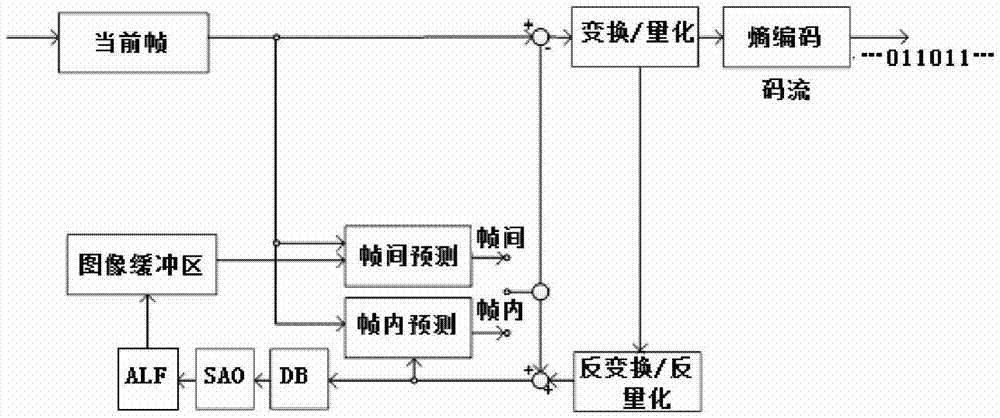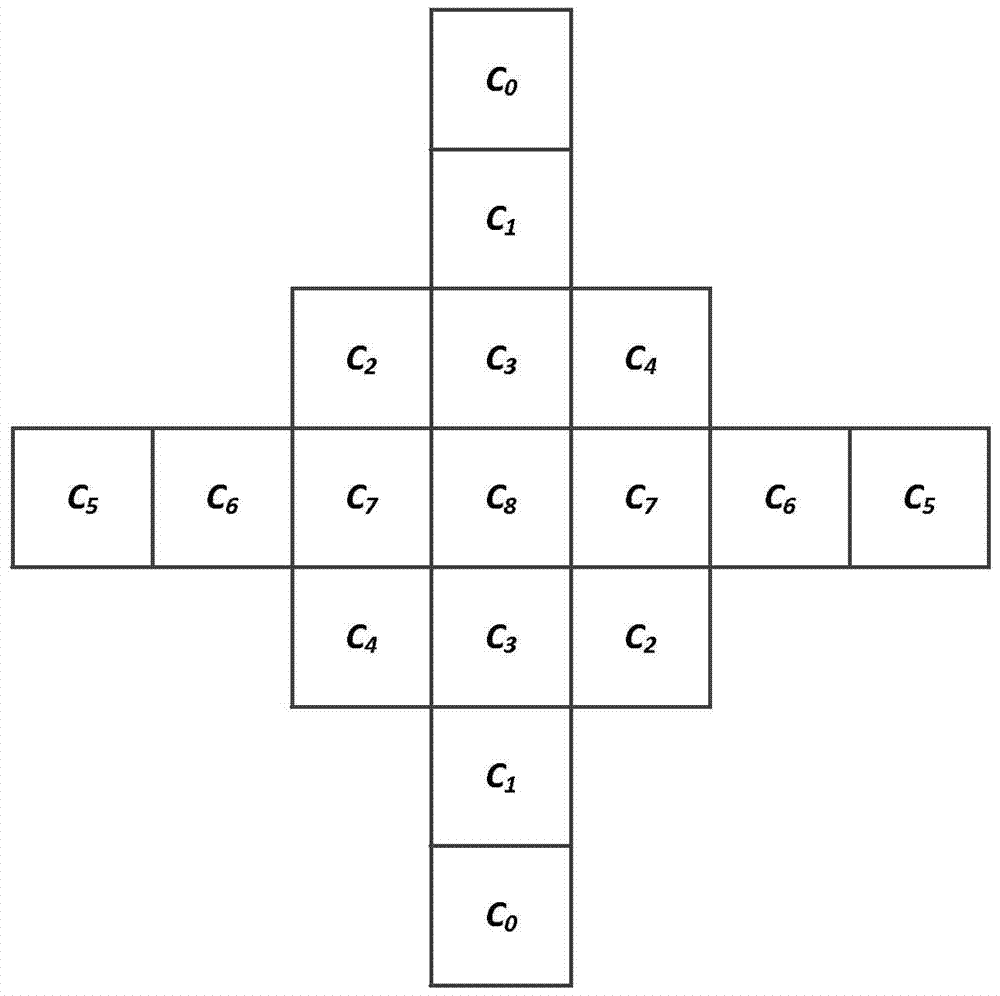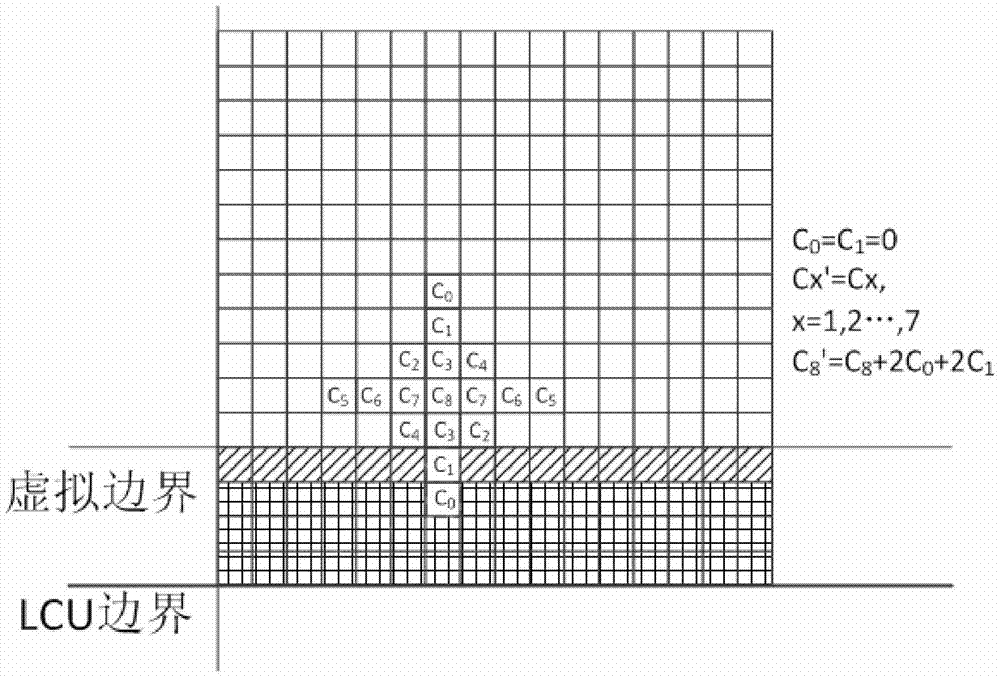Boundary processing method and device for adaptive loop filtering
An adaptive loop and boundary processing technology, applied in image communication, digital video signal modification, electrical components, etc., to achieve the effect of easy implementation, small coding performance loss, and reduced hardware cost
- Summary
- Abstract
- Description
- Claims
- Application Information
AI Technical Summary
Problems solved by technology
Method used
Image
Examples
Embodiment 1
[0033] Such as Figure 4 As shown, this embodiment provides a boundary processing method for adaptive loop filtering, including: determining the filtering area according to the upper boundary and lower boundary of the current largest coding unit LCU of the sequence; and determining the left side of the filtering area Whether the pixels outside the boundary and the right boundary are available, and during the ALF process of the adaptive loop filtering, for the unavailable pixel samples, the pixel samples closest to the pixel samples in the filtering area are used instead.
[0034] In addition, considering the problem of cross-slice boundary filtering, the method further includes: adding a flag bit on the sequence header of the sequence, where the flag bit is used to control whether the ALF allows cross-slice boundary filtering. In practice, the flag bit can be recorded as cross_slice_loopfilter_enable, and the value of cross_slice_loopfilter_enable can be set to indicate whethe...
Embodiment 2
[0048] Corresponding to the boundary processing method for adaptive loop filtering in Embodiment 1, this embodiment provides a boundary processing device for adaptive loop filtering, such as Figure 7 As shown, it includes: a filtering area determination module, which is used to determine the filtering area according to the upper boundary and lower boundary of the current largest coding unit of the sequence; and a boundary processing module, which is used to determine the left boundary and the right boundary of the filtering area Whether the pixel is available, and in the ALF process of the adaptive loop filtering, for the unavailable pixel sample, the pixel sample closest to the pixel sample in the filtering area is used instead.
[0049] In addition, the boundary processing device further includes a flag bit setting module, which is used to add a flag bit to the sequence header of the sequence, and the flag bit is used to control whether the ALF allows cross-slice boundary fi...
PUM
 Login to View More
Login to View More Abstract
Description
Claims
Application Information
 Login to View More
Login to View More - R&D
- Intellectual Property
- Life Sciences
- Materials
- Tech Scout
- Unparalleled Data Quality
- Higher Quality Content
- 60% Fewer Hallucinations
Browse by: Latest US Patents, China's latest patents, Technical Efficacy Thesaurus, Application Domain, Technology Topic, Popular Technical Reports.
© 2025 PatSnap. All rights reserved.Legal|Privacy policy|Modern Slavery Act Transparency Statement|Sitemap|About US| Contact US: help@patsnap.com



